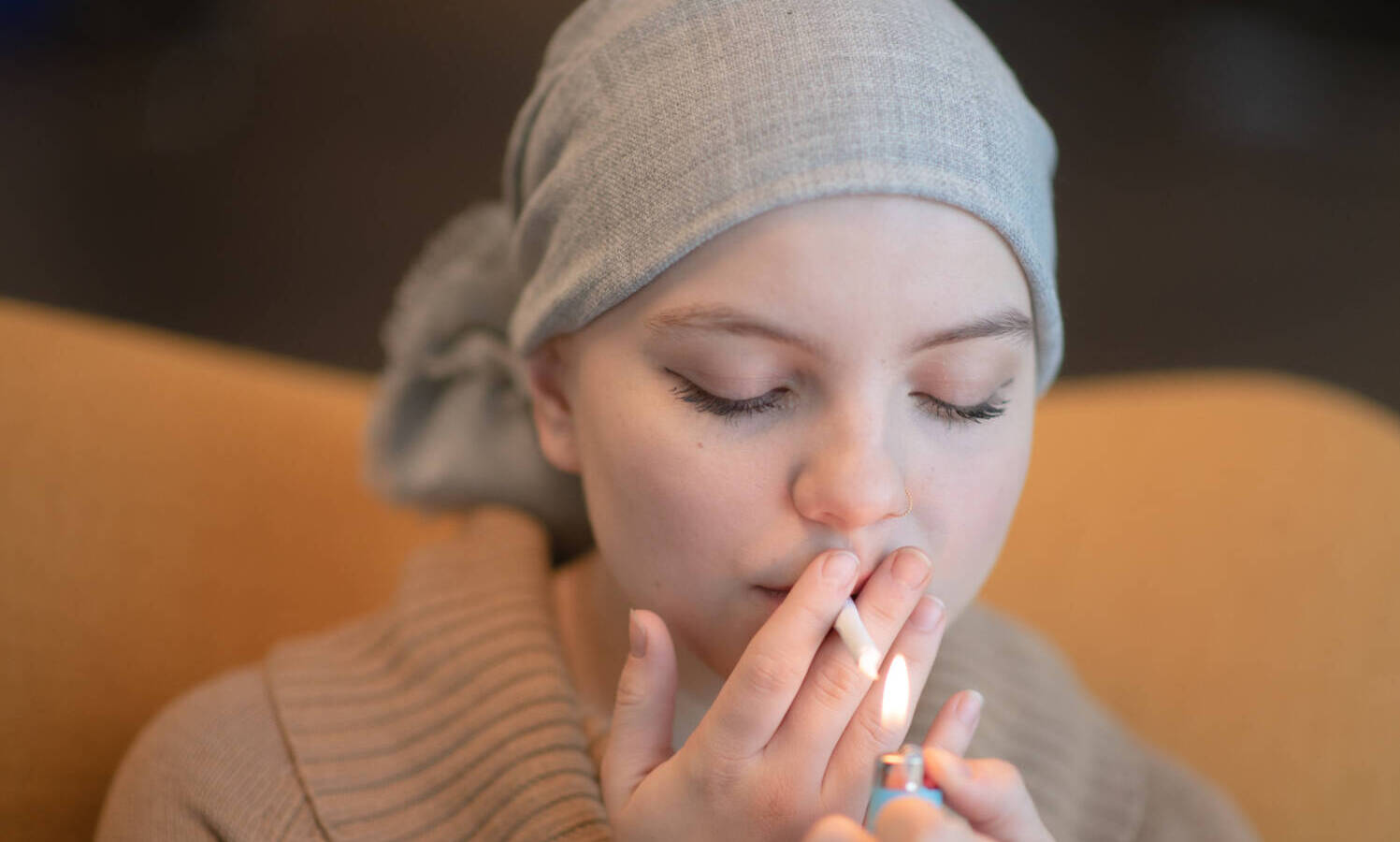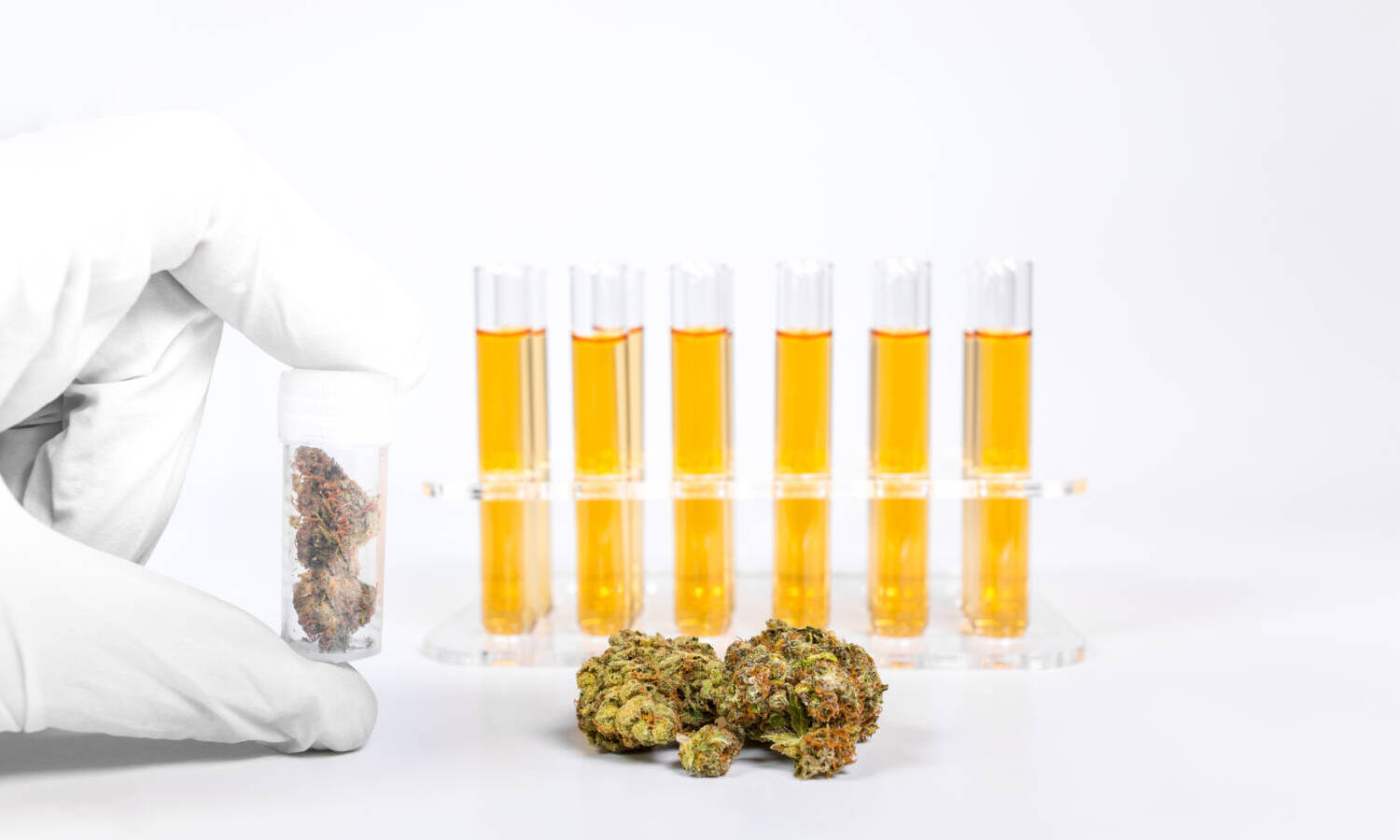
Cannabis in cancer treatment: Feds fund new research
Of
In cancer patients, cannabinoids have been used primarily as part of palliative care to relieve pain, reduce inflammation, relieve nausea, and stimulate appetite.
However, as the field has been evolving rapidly in recent years, some early clinical trials and studies of cannabinoids to treat human cancer have recently been initiated, thanks to both legislative efforts and the push of marijuana advocates.
Photo by Aleksandr_Kravtsov/Getty Images
RELATED: It’s official: House approves bill to further expand medical marijuana research
Last week, the federal government took a step forward by promoting funding opportunities for researchers to study the benefits and risks of marijuana for cancer patients.
The National Institutes of Health (NIH) said in a note of special interest on Thursday that research on the health effects of cannabis use, including potential harms and benefits, remains limited, although one in four cancer patients has reported using cannabis products to help Treatment used to have her symptoms.
The NIH’s National Cancer Institute said the proposal aims to “promote research to understand the mechanisms by which cannabis and cannabinoids affect cancer biology, cancer scavenging, cancer treatment and resistance, and cancer symptom management.”
The agency provided an overview of existing research on the link between cannabis and cancer, as well as a list of the following areas of interest for researchers to explore:
- Understand how exogenous cannabis and cannabinoids affect cancer development (preneoplasia from malignancy) and biology, including the tumor microenvironment;
- Understanding how endogenous cannabinoid pathways influence cancer development and biology;
- Defining the impact of cannabis and cannabinoids on cancer treatment (particularly targeted treatments and immunotherapy) and the development of treatment resistance;
- Understanding the use of cannabis and cannabinoids in cancer intervention and describing how endocannabinoid signaling pathways can inhibit early-stage cancer;
- defining the mechanisms of action of cannabis and cannabinoids in alleviating cancer symptoms and cancer treatments (such as pain, nausea and neuropathy);
- Understanding the combinatorial effects of cannabis and cannabinoids in conjunction with other factors (such as tobacco constituents, alcohol, microbiome or diet) on cancer biology, treatment and symptom management;
- Identification of biological mechanisms underlying gender or ethnicity differences in cannabis and cannabinoid effects in cancer biology, treatment or symptom management; and
- Development or validation of new and human-relevant model systems to understand the effects of cannabis and cannabinoids in cancer biology, treatment or symptom management.
 Photo by FatCamera/Getty Images
Photo by FatCamera/Getty Images
The agency also said that epidemiological studies on cannabis use and cancer risk “have yielded limited and conflicting results,” adding that “studies integrating expertise from multiple disciplines use state-of-the-art human-relevant models (e.g., organoid or patient-derived xenograft models) and the use of advanced technologies and methods are strongly encouraged.”
Cannabinoids in cancer treatment
To date, several studies have provided encouraging results.
Researchers at the Medical College of Georgia at Augusta University gave those suffering from brain tumors some hope with a new study that revealed that inhaled CBD reduced the size of glioblastoma tumors in an animal model.
RELATED: CBD limits tumor growth in cancer patients, new study finds
Last year, cancer charities and the UK’s National Health Services (NHS) launched a study to see if Sativex, a cannabis-based oral spray, combined with a chemotherapy drug – temozolomide – could help kill glioblastoma tumor cells and reduce the overall duration of the disease extend patients. Life.
Another study conducted by Hadassah Medical Center physicians showed a six-fold improvement in breast cancer cell killing when using certain Cannabotech medicinal cannabis products (CNTC.TA) in combination with standard oncology treatments and drug protocols – chemotherapy, biological and hormonal, compared to the existing treatment.
RELATED: Cannabis and breast cancer: What a new study reveals
Additionally, Cannabotech, which is also involved in the development of a botanical drug based on an extract of the Cyathus striatus fungus and a cannabinoid extract from the cannabis plant, reported last month that the fungal extract eliminated 100 in experiments performed on a cell model % of pancreatic cancer cells relatively selectively and without damaging normal cells.
 Photo by Steffi Ratzke/EyeEm/Getty Images
Photo by Steffi Ratzke/EyeEm/Getty Images
Marijuana & Research
Meanwhile, York County, PA-based Groff North America claimed to be the first company in the US to introduce its cannabis crop for legal medical research. The news came about 10 months after the DEA announced it would begin approving applications that would allow some marijuana growers to receive federal approval to grow the plant for research purposes.
White House press secretary Jen Psaki recently said that for scientists, approving additional cannabis producers “is an important step in advancing research because it expands the quantity and quality of cannabis available for research use.”
This article originally appeared on Benzinga and has been republished with permission.

Post a comment: